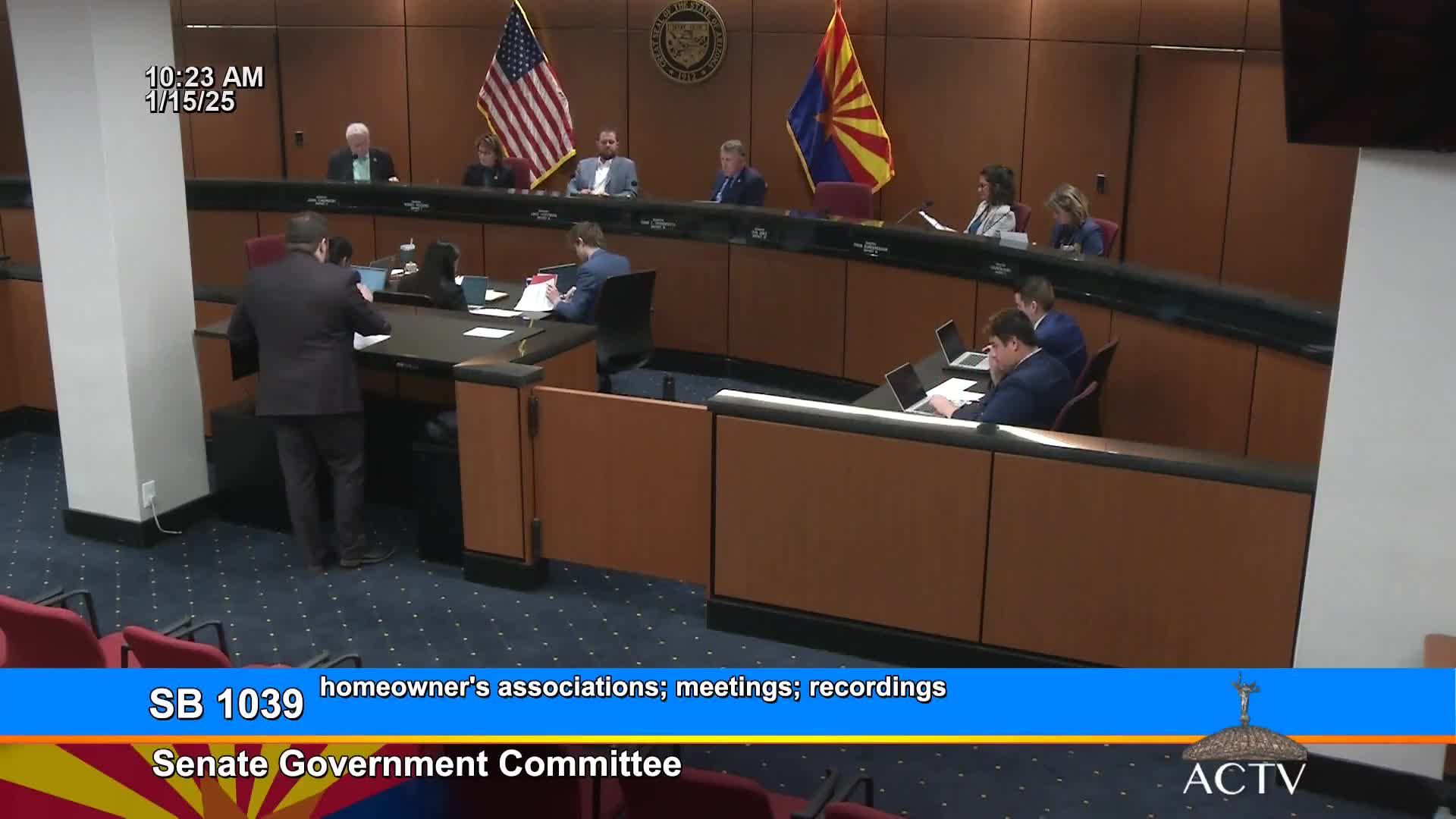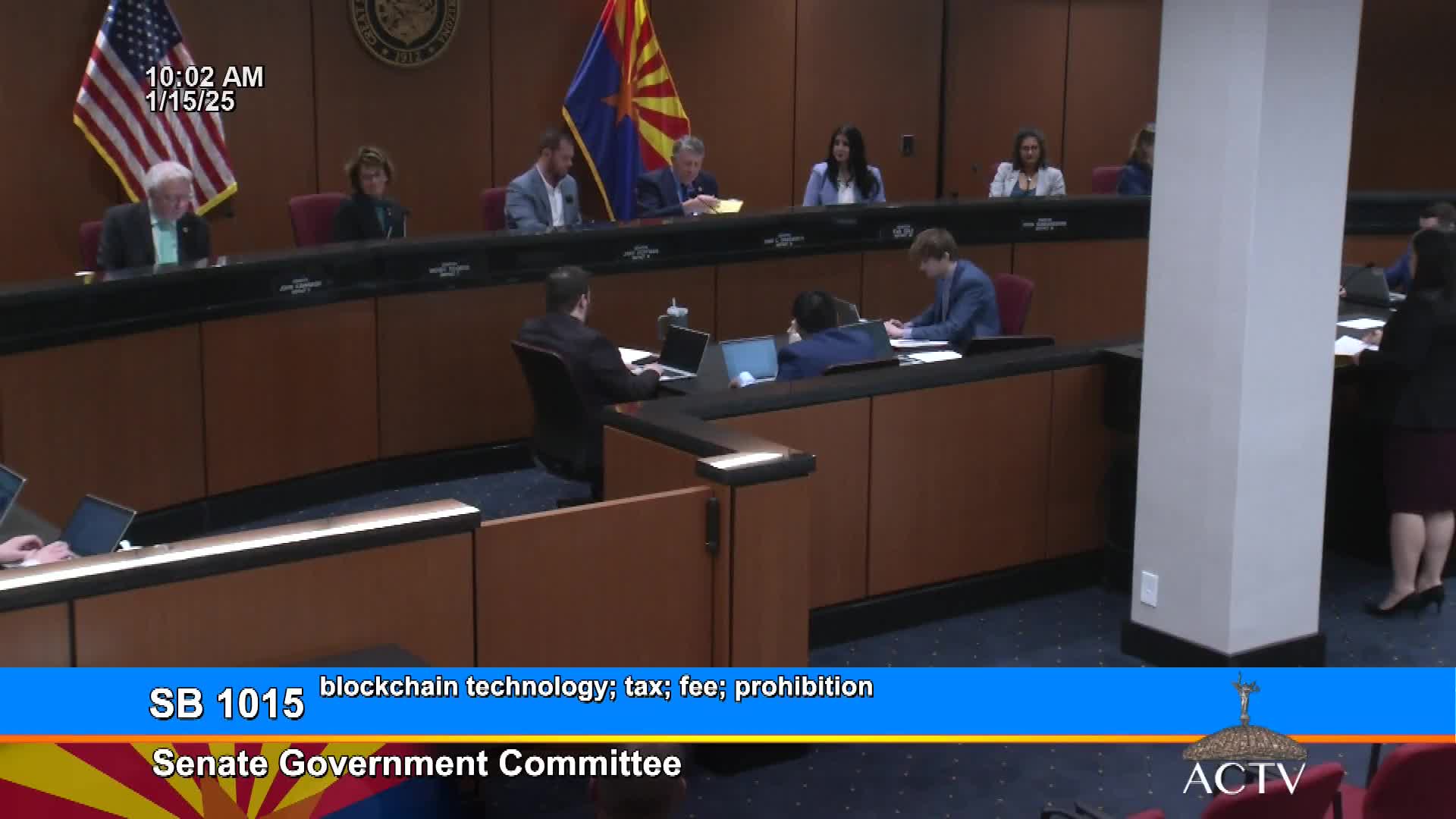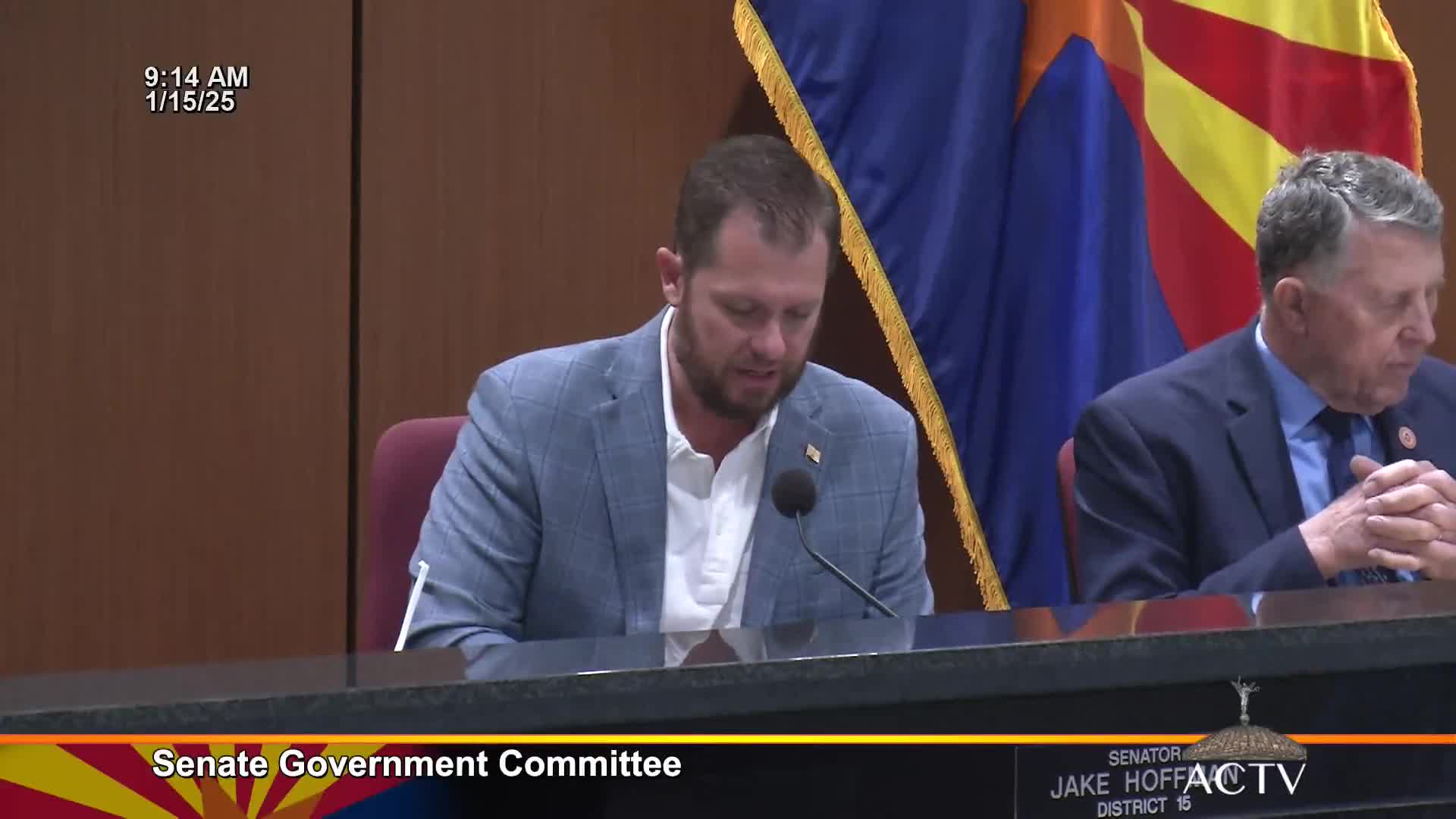Article not found
This article is no longer available. But don't worry—we've gathered other articles that discuss the same topic.

Panel approves bill requiring homeowner associations to retain recordings of open meetings for six months

Committee advances bill barring local taxes on blockchain activity amid energy and water concerns

